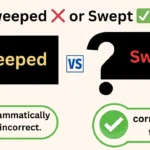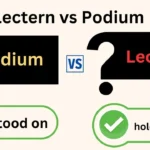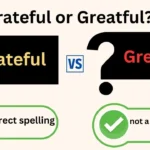When it comes to mastering English grammar, one of the most perplexing issues is choosing between “was” and “were” in conditional sentences. This choice can dramatically affect the clarity and correctness of your writing.
In this article, we’ll dive deep into the nuances of these two verbs, explore their proper usage in various contexts, and provide practical tips to ensure you use them correctly.
Understanding the Basics: Indicative vs. Subjunctive Mood
In English, mood indicates the attitude of the speaker toward the action. There are several moods, but the two most relevant to our discussion are the indicative and the subjunctive.
- Indicative Mood: This is the mood used for statements of fact and reality. It reflects how things actually are. For example, “She was at the store yesterday.”
- Subjunctive Mood: This mood expresses wishes, hypothetical situations, or actions that are contrary to reality. It deals with situations that are not real or are imagined. For example, “If she were at the store, she would have seen him.”
The verb forms used in these moods differ significantly. The indicative mood uses “was” for the singular past tense of “to be,” while the subjunctive mood uses “were” for hypothetical situations.
Unraveling Conditional Sentences in English
Conditional sentences are structured to show the relationship between a condition and its possible outcome. They are divided into four types, each serving a different purpose:
- Zero Conditional: Used for general truths and facts. The structure is: “If + present simple, + present simple.”
- First Conditional: Used for real and possible situations in the future. The structure is: “If + present simple, + will + base verb.”
- Second Conditional: Used for hypothetical or unlikely situations in the present or future. The structure is: “If + past simple, + would + base verb.”
- Third Conditional: Used for hypothetical situations in the past. The structure is: “If + past perfect, + would have + past participle.”
Usage of “Was” and “Were” in Conditional Sentences
- Zero and First Conditionals: Typically use “was” for statements of fact.
- Second and Third Conditionals: Generally use “were” for hypothetical situations.
When to Use “Was” in Real Conditional Sentences
Real conditionals refer to situations that are true or possible. In these cases, we often use “was” in the indicative mood:
- First Conditional Example: “If he was available, he would join us for dinner.”
- Zero Conditional Example: “If it was raining, the ground was wet.”
Here, “was” reflects real, factual conditions rather than hypothetical ones.
Distinguishing “Were” in Unreal Conditional Scenarios
Unreal conditionals are used to discuss hypothetical or contrary-to-fact situations. Here, “were” is used in the subjunctive mood:
- Second Conditional Example: “If he were available, he would join us for dinner.” (Implying he is not available.)
- Third Conditional Example: “If he had been available, he would have joined us for dinner.” (Implying he was not available in the past.)
Using “were” in these contexts indicates that the condition is not real but imagined or hypothetical.
The Past Tense Dilemma: Simplifying “Was” vs. “Were”
Understanding when to use “was” and “were” can be tricky, especially because both are past tense forms of “to be.” Here’s a quick guide to simplify their use:
- “Was”: Use for real, factual past situations in the indicative mood.
- “Were”: Use for hypothetical or contrary-to-fact situations in the subjunctive mood.
Examples:
- Real Past Situation: “She was at the meeting yesterday.” (Factual statement)
- Hypothetical Past Situation: “If she had been at the meeting, she would have known the details.” (Imagined scenario)
Clear Examples That Illustrate the Difference
Let’s look at some clear examples to further illustrate the difference between “was” and “were”:
| Condition | Example with “Was” | Example with “Were” |
| Zero Conditional | “If the sun was shining, we went outside.” | – |
| First Conditional | “If he was late, he would miss the train.” | – |
| Second Conditional | – | “If he were here, he would help us.” |
| Third Conditional | – | “If he had been here, he would have helped us.” |
Applying the Rule: Tips for Remembering When to Use “Were” and “Was”
Choosing between “was” and “were” can be simplified with a few practical tips:
- For Real Situations: Use “was” in the indicative mood.
- For Hypothetical Situations: Use “were” in the subjunctive mood.
- Memory Tip: Remember that “were” is used for situations contrary to fact—if it’s not true, it’s a clue to use “were.”
Common Mistakes to Avoid in Your Writing
Here are some common mistakes people make with “was” and “were”:
- Using “was” in a hypothetical scenario: Incorrect: “If she was here, she would know the answer.” Correct: “If she were here, she would know the answer.”
- Confusing past tense with subjunctive mood: Incorrect: “If he was more careful, he would have finished the project.” Correct: “If he were more careful, he would have finished the project.”
The Importance of Context in Choosing Between “Was” and “Were”
The context of a sentence often determines whether to use “was” or “were.” Consider these factors:
- Factual vs. Hypothetical: Is the statement a fact or an imagination?
- Mood of the Sentence: Is the mood indicative (real) or subjunctive (hypothetical)?
Examples:
- Factual Context: “He was at the office last week.” (Real fact)
- Hypothetical Context: “If he were at the office, he would have completed the report.” (Imagined scenario)
Professional Writing Insights: Enhancing Clarity in Your Text
Mastering the use of “was” and “were” enhances the clarity and professionalism of your writing. Here’s how to ensure your text is clear and precise:
- Proofread for Consistency: Ensure you’re using “was” and “were” correctly throughout your document.
- Seek Feedback: Have others review your work to spot any misuse of “was” and “were.”
- Practice: Regularly practice writing conditional sentences to become more comfortable with these forms.

Amelia Harris, a passionate educator, simplifies English grammar and vocabulary for learners of all levels. With her engaging style, mastering English has never been easie




